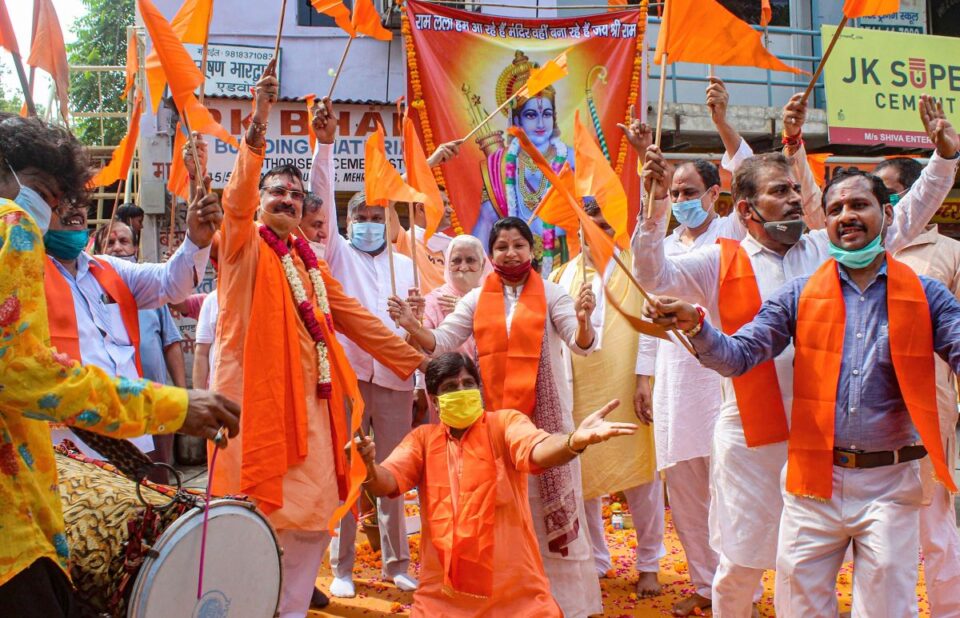For relatives of many kar sevaks who were killed in the Sabarmati Express coach fire incident in Gujarat’s Godhra in 2002, the ‘bhoomi pujan’ for a Ram temple in Ayodhya on Wednesday brought a sense of closure to the pains of losing their near and dear ones for the cause of the temple.
IMAGE: Members of Hindu organisations celebrate the groundbreaking ceremony of the Ayodhya’s Ram Temple, in Gurugram. Photograph: PTI Photo
“All I can say is that their sacrifice will not go in vain,” said Bipin Thakkar, who had lost his father-in-law and brother-in-law in the Godhra incident.
Thakkar, who lives in Ahmedabad with his wife, says many people had sacrificed their lives for the cause of building the temple of Lord Ram at his birthplace in Ayodhya.
“It is a matter of great delight that the temple is finally coming up,” he said referring to the bhoomi pujan performed by Prime Minister Narendra Modi in Ayodhya earlier in the day.
Fifty-nine ‘kar sevaks’ returning from Ayodhya were killed in the Godhra train burning incident on February 27, 2002, triggering the worst communal riots in the history of Gujarat in which over 1,000 people, mostly belonging to a minority community, were killed.
A kar sevak is someone who offers services for free to a religious cause. Thousands of kar sevaks had participated in the Ram Janmabhoomi movement and the Rath Yatra in the year 1990.
“Construction of a grand temple of Ram Lalla at Ayodhya is the solemn vow taken by all Hindus, which is realised now. Lord Ram is adored by all Hindus,” says Ashok Prajapati, whose father Javer Prajapati was charred to death in the S-6 coach of the Ahmedabad-bound train on the fateful day.
Mahesh Shah, who was part of a group of kar sevaks on that train, recalled his escape from the burning coach, the images of which still continue to haunt him. “19 of 90 kar sevaks from Ahmemdabad had lost their lives in the incident,” Shah said.
Shah, an officer-bearer of ‘Antarrashtriya Hindu Parishad’ floated by former Vishwa Hindu Parishad chief Pravin Togadia, said he survived because he jumped out of a window of the burning coach.
“We had taken a pledge for theconstruction of Ram temple in Ayodhya. It’s a matter of great happiness that the dream is coming true. It’s sad that the matter was politicised, but we are committed to work for the community,” he said.
The way for the construction of the temple in Ayodhya on the site where Babri Masjid once stood was cleared by the Supreme Court last year, after decades of protracted legal battle over the title suit.




